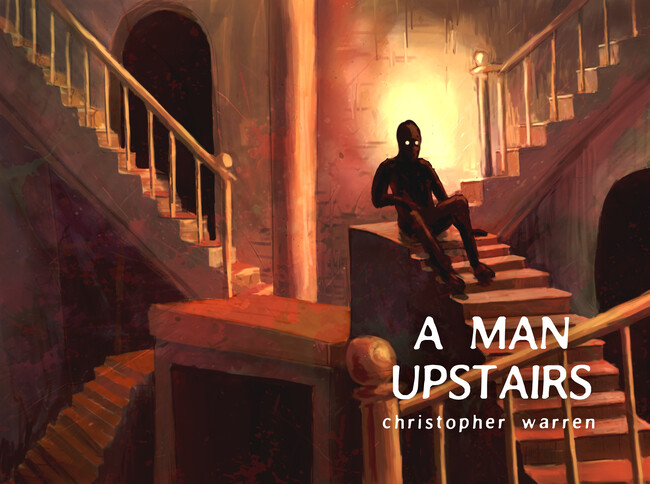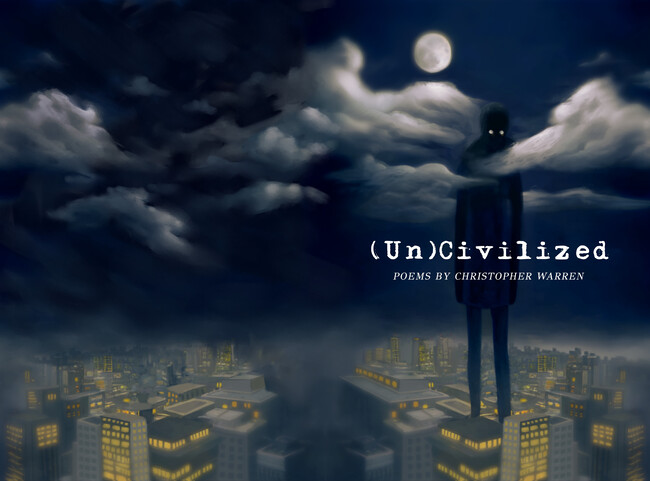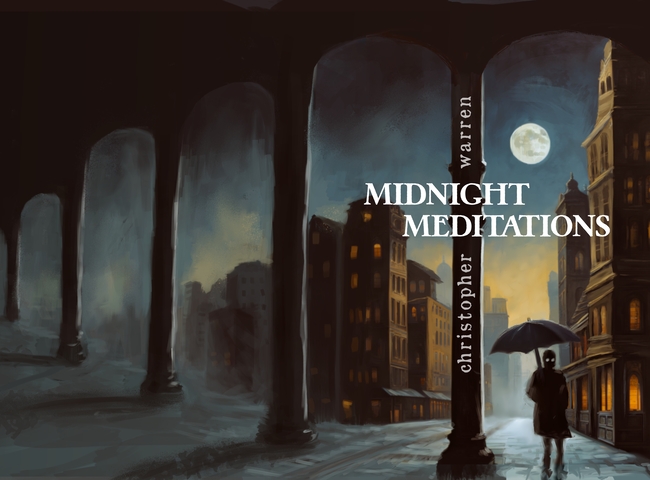Why Poetry is a Bad Word
Out of all the forms of art out there, the one with the worst name in literature is poetry. That’s because poetry can mean classics by Walt Whitman, Robert Frost or Edgar Allan Poe, or it can mean the nonsense psychobabble of E. E. Cummings and the many that have come after him. Take for example, the poetry of Rupi Kaur. It’s the kind of poetry that’s so bad, it has to be seen to be believed.
Let’s be real: a lot of poetry out there sounds like the insane ramblings of a drugged out serial killer. Even just saying it that way makes it sound more exciting than it is. I wonder if drugged out serial killers would have better poems than the average poet.
I didn’t personally have much interest in writing poetry, because frankly, even admitting to it sounds kinda gay. Imagine walking into a room full of writers, and you announce yourself as “the guy that writes poetry.” People might smile and shake your hand, but we all know what they’re thinking.
But alas, I saw something different in the medium of poetry. Of course we all know that song lyrics are essentially poetry, and there’s plenty of poetry with rhythmic rhyming and clever literary devices weaved in. Now and then, every Joe can think up a poem from time to time. To me, it was the kind of thing I would come up with occasionally, but nothing I would seriously consider as a part of my regular work. Then an awful thing happened.
I was listening to a bunch of music that happened to contain spoken word. There was the Golden Palominos, a song called “Child Psychology” by Black Box Recorder, and finally, a recording that wasn’t a song at all. It was the voice of the author Steven Jesse Bernstein, and he was telling the story of his face.
I was absolutely struck. This is really something, I thought. Bernstein’s poem, “Face,” doesn’t come across like poetry. His voice is monotonous, raspy around the edges, and yet hypnotic. He colorfully describes himself as having an ugly face–one that earned him a lot of trouble and trauma growing up. I had never heard anything like it.
Of course, I had to get my hands on more of Bernstein’s work. Unfortunately, Bernstein was (putting it lightly,) a troubled soul. He committed suicide in 1991, and since then, what remains of his work seems to have fallen into relative obscurity. He recorded a full-length album called “Prison,” which features his spoken word with odd musical accompaniment.
Bernstein was mentored by William S. Burroughs–a creepy old man who combined a Harvard education with the heroin scene. You can definitely see the influence. And of course, who could mention these without bringing up the legend Charles Bukowski. After having a run-in with these guys on the page, unfortunately, I realized I was now a poet.
Around that time, I found myself about to lose everything. It’s a story I’ve told plenty of times before, but my mother had gambled most of our money for rent. I hastily left my home life behind and went to live with a friend. At the time I was struggling to cope with the reality of my life, my childhood, everything that had happened, and the frightening possibility of the terrible things that could happen. I had to unenroll from high school and get a GED. I had the oppressive sense that the world is a nasty place to be. How is anyone supposed to survive?
That’s when I wrote my first “poetry” book, A Man Upstairs. My dilemma of course, is that the word poetry probably doesn’t conjure the right expectations of what you’ll find in this book. But at the same time, calling these short stories would be equally confusing.

In this collection, a casual news reader learns of a local serial killer on the loose, and he’s met with a dilemma when a stranger knocks on his door. A woman has an unusual motive for getting with a long string of lovers. A writer takes himself too seriously, and has a long series of “writing rituals” to prove it. One question unravels a very bad situation, “How about them cornflakes?”
A Man Upstairs is distinctly fiction, though plenty of details are inspired by my own experiences–even if it’s only in an abstract way. I thought it would be my first an only book of this kind.
Oh no, the poetry disease had only begun.
But it didn’t rise again for many years. So many things happened. I became horribly ill, almost died several times, lost my business, got married, survived an almost apocalyptic economic meltdown during/after the great ass disaster of 2020, survived a freeze that completely shut down Texas and brought a lot of devastation and death.
The next book of poetry came after all of this, and in the meantime I had become a different person. I almost didn’t have the stamina to write anything except what was blatantly on my mind. I became fascinated with the layers of evil inside human beings, and how that evil gets there, and how it can be overcome. This is when my love for spiritual principles began to grow.

(Un)Civilized is a book that has zero optimism for this world, but has all the optimism for an inner awakening. A distinct difference from the first book, is that a number of these poems are straight autobiography. “Every Tree” is a story of broken trust and overstepped boundaries. “Play your Guitar” tells of a day where I went downtown to play guitar on the streets so my wife and I could eat, and I met at least two other guys with guitars who were just as bad off as me. “Sage and Smoke” is about the frightening superstitions I grew up with. “Johnny” is the story of my next door neighbor, a real character who had a supernatural experience during his time in the war zone in Vietnam.
Of course, there’s a variety of other topics to be found. A rhythmic chant on the horrors of the 9-to-5 job cycle, a fable that resembles a lesson from the garden of Eden, a picture of a life possessed by obsessive compulsions, an explanation of the true purpose of art, and so much more.
The beauty of this art form, is that you can unpack a whole world of ideas in a few lines. The secret to this type of writing is in its brevity and simplicity. I personally think there’s little value to a story you only read once. It’s the stories that keep coming back that matter. It’s the stories that stay with you long after reading them, because you see how they apply to your life, and it makes you wonder. It’s the stories that start conversations over and over again.
After (Un)Civilized, I thought I couldn’t possibly have anything left to say. But more things happened. I remembered more stories from the past. I went deeper into spiritual principles. I saw the spiritual principles playing out in ways that were shocking, predictable, and confirming.

Midnight Meditations is my latest installment of poetry. It has musings on Hell, how marriages go wrong, the curse of worshiping one’s own mother as if she’s God, tales of strange, sad, and sinister people I met on the streets, and workplace horror stories among other things.
These books collectively hold 130 poems, and at this rate, I have no plans on stopping. Currently, only (Un)Civilized is available at The Lurking Press. You can read online, listen to or download the audiobook version, or download the ebook in a few different formats. However, I am about to release paperback books of all three books, and I am in the process of producing the audiobooks for A Man Upstairs and Midnight Meditations, so stay tuned for updates on here and The Lurking Press. In the future, I may also make the ebooks available on other platforms if that makes accessing the material more convenient for readers.
With all this said, I hope that in these books, you find that poetry isn’t such a bad word after all.